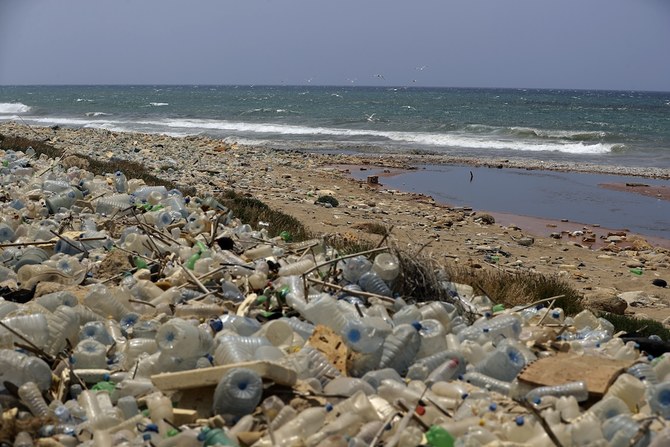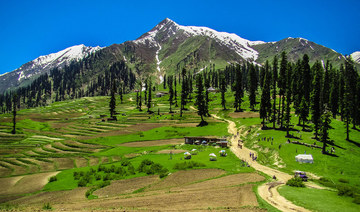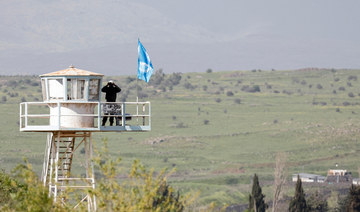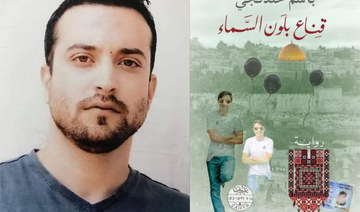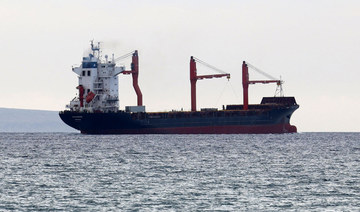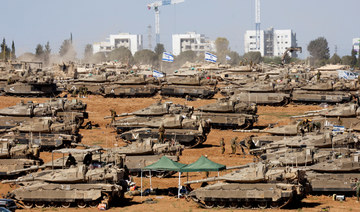DUBAI: The COVID-19 pandemic has set the world back on the slippery slope of plastic overuse, just when it seemed as if plastic reduction was becoming an achievable goal, experts fear.
The priority of hygiene to combat the spread of the virus has led to a sharp increase in the consumption of disposable plastic products — gloves, single-use water bottles, cutlery, packaging and medical supplies — across the world.
In some Gulf cities, many dine-in customers are being served up to three plastic plates, cups and sets of cutlery for a single three-course meal.
“It’s a disaster,” said Tatiana Antonelli Abella, founder and managing director of the UAE-based green social enterprise Goumbook. “The pandemic has undoubtedly impacted every aspect of our lives, from work to school and our daily tasks.
“It is unfortunate that sustainable practices that have taken a lot of work to implement have now been replaced, due to sanitization (requirements), by the use of single-use plastic bottles, cutlery and crockery in restaurants and delivery services.”
Last year, some communities across the UAE banned plastic use in restaurants, while supermarkets planned to charge customers for their plastic bags. Almost overnight, the initiative has taken a back seat.
“It is a contentious matter, as many would argue against any evidence that using reusables, if sanitized correctly, could in any way be dangerous,” Abella told Arab News.
“Dish-washing machines, high temperatures and dish soap have always been 100 percent efficient (as sanitizers) and always will be. And most of the plastic used is also not fully recyclable.
FASTFACT
Disposables
Eco-friendly disposable items are 20-30 percent more expensive
“Unfortunately, if plastic is not properly washed and cleaned, it is considered contaminated and will end up as general waste in landfills.”
Other sustainability experts concur. “If restaurants clean their tableware and cutlery with hot water and detergent after every use, there is no need for single-use items,” said Amruta Kshemkalyani, a UAE-based sustainability adviser and founder of Sustainability Tribe.
“Restaurants just need to pay extra attention to their tableware cleaning process. COVID-19 shouldn’t be used as an excuse to create unnecessary waste and harm the environment.”
Peter Avram, director of the Dubai-based Avani Middle East, which produces disposable packaging solutions and compostable plastic alternatives, said there had been a surge in the use of disposables during the current pandemic.
“Regrettably, due to the current economic situation, plastic is being preferred to the eco-friendly options simply because of costs,” he said. “Eco-friendly disposables are 20 to 30 percent more expensive.”
The UAE consumes an average of 450 plastic bottles of water per person per year – or more than four billion bottles annually.
Opinion
This section contains relevant reference points, placed in (Opinion field)
“It hurts to see so many years of hard work from environmental organizations going ‘to waste’,” Abella said. “The relaxation on the (consumption of) single-use plastics, even if temporary, could quite likely have long-term consequences on consumer behavior.”
When Kshemkalyani started a zero-waste lifestyle in 2015, almost no restaurants and cafes in Dubai were aware of the concept of serving food and drinks in reusable containers.
The environmental cause is expected to return to the foreground when the crisis passes.
Peter Avram, Director of Avani Middle East
Since then, the #zerowasteUAE social initiative and Sustainability Tribe have made tireless efforts to bring awareness to the community on waste issues.
“Now, in the name of hygiene and convenience, if the disposable culture gets popular again, it will be a big hurdle in society’s progress towards sustainable habits,” she said, especially when there is no evidence that a switch to single-use items is imperative during COVID-19.
Kshemkalyani questioned whether restaurants are recycling their plastic waste or just dumping it. “We do not want more waste in landfills that will further contaminate and pollute our land, water and air,” she said.
“Restaurants can start using their reusable serving sets and intensify the right cleaning and hygiene procedures. Instead of spending on single-use items, they have an opportunity to keep their manpower and use it wisely for intensified cleaning – this would also help employment.”
Kshemkalyani also recommended that restaurants allow customers to bring their own plates, cutlery and glasses. “Restaurants can also use environmentally friendly disposables, like palm leaf and wood cutlery, as a temporary measure,” she said.
According to Abella, “It is important to keep the conversation going to use your consumer power to campaign for these changes.”
Although some outlets are seeking to offer alternatives, consumers should also vote with their wallets and ask restaurants to use sustainable alternatives, she said.
She said: “We should try to cook more at home and, if need be, choose restaurants that make an effort to serve their food in eco-friendly packaging.”
She pointed to the trend of people ordering more items than usual during the lockdown, with many of the items delivered in plastic containers, “wrapped in plastic and bagged in more plastic.”
Avram said that sustainability and recycling efforts must continue, pointing to the uptick in home composting procedures that many residents have begun to undertake to dispose of eco-friendly takeaway items.
“That has been very encouraging,” he said. “It is expected that the environmental cause will return to the foreground when the crisis has passed.”
Shams Hasan, air quality and corporate environmental responsibility expert at Envipro Consulting in the US, told Arab News: “The COVID-19 pandemic has created strange problems. Plastic items that were being phased out are at least temporarily back in use.
“The fear is that during any crisis, society will start looking at an easy way out and apply ‘band-aid’ solutions instead of working on long-term strategies and solutions.”
Kristin Hughes, director of Global Plastic Action Partnership and a member of the executive committee, World Economic Forum, pointed to the challenge facing the world.
“We stand at the junction of two diverging paths,” she said. “One is a stop-gap solution that puts us solidly on track toward a not-so-distant future in which there is more plastic in the ocean than fish.
“The other is a sustainable model of living and working that will benefit us long into the future – one that will create a healthier, more equitable and more livable future for all.”
-----------------






